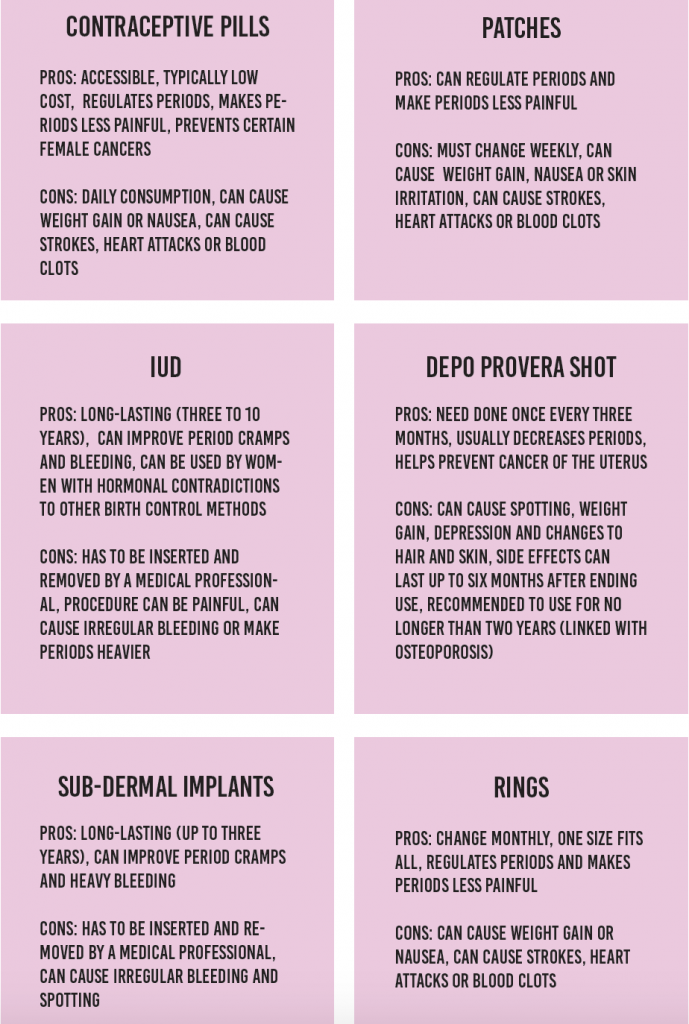
Birth control is gaining popularity amongst college students and with so many methods available, it’s hard to decide which option is the best to use.
According to a statistical report from the CDC, 62 percent of women of reproductive age are actively using birth control as a contraceptive.
“Some of the main types of contraception used by women, especially college-aged women, include oral contraceptive pills, intrauterine devices (IUD) and sub-dermal implants,” Women’s Health Nurse Practitioner at Birkam Health Center Christy Bourdlais said. “Other forms include patches, vaginal rings and the Depo Provera shot. All of these options deliver hormones to your body in various ways to prevent pregnancy from occurring.”
According to Bourdlais, birth control pills are the most common and one of the oldest methods of contraception. However, birth control can serve more purposes other than pregnancy prevention.
“This can range from less heavy and less painful periods, improvement in acne and regulation and control of a women’s cycle, period prediction or avoidance,” Bourdais said. “In addition, many studies have found that women who did use hormonal contraception in between bearing children were less likely to develop certain female cancers—uterine and ovarian.”
Ferris Spanish and technical and professional communication sophomore Desarae Bloom testified that these benefits are true.
“Birth control is so important, especially for teens and young adults,” Bloom said. “I use it to regulate my hormones and mood but also to prevent pregnancy.”
Although many insurances cover birth control, the price varies for each method without insurance, with contraceptive pills costing $15 to $50 per month, while the IUD costs $600 to $900, plus a $200 insertion fee, according to Bourdlais.
“It’s far too expensive for many young women to afford on their own,” Ferris sociology senior Paige Peterson said. “Of course, women can always resort to Planned Parenthood but with the government now making motions to do away with Planned Parenthood, I think it’s going to become more and more difficult for women to have access to birth control, resulting in unplanned pregnancies.”
“Birth control is an important aspect of many women’s lives,” Bourdlais said. “It helps in delaying pregnancy until educational or career goals are met, usually making a woman more able to provide financially to her child. Birth control also allows a woman to space her children so that pregnancy is not occurring consecutively.”
For more information, make an appointment with Bourdlais at Birkam Health Center to discuss contraception options.
Click here for more from the Torch’s news section.
